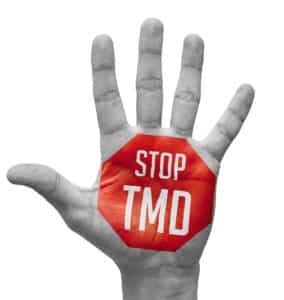 If you notice a persistent popping or crackling sensation in your jaw, then you may be suffering from a common and serious jaw joint disorder. TMJ disorder, also known as TMD, can make fully opening and closing your jaw difficult. Do you have TMJ disorder? If you do, then there are conservative treatment options available.
If you notice a persistent popping or crackling sensation in your jaw, then you may be suffering from a common and serious jaw joint disorder. TMJ disorder, also known as TMD, can make fully opening and closing your jaw difficult. Do you have TMJ disorder? If you do, then there are conservative treatment options available.
Frequently Asked Questions About TMJ Disorder
Question: How do I know if I have TMD?
Answer: Patients with TMJ dysfunction may experience a number of symptoms, including soreness in the jaw or face, a popping or clicking in the jaw, headaches, and earaches. If you experience one or more of these symptoms then you should talk to a professional about diagnosing your discomfort and possible treatment options.
Question: What causes TMJ disorder?
Answer: TMD occurs when the jaw joints become strained. These joints connect the jaw to the skull and allow us to eat and speak. Misalignment, injury, and tooth loss can all place strain on the joints. Over time, the disorder can make opening and closing the mouth completely a difficult task.
Question: Is the disorder related to bruxism?
Answer: In some cases the disorder can lead to bruxism, which refers to the grinding or clenching of the teeth, and in others bruxism can lead to TMD. Bruxism can place strain on the jaw joints and damage the teeth, wearing them down and leading to chips or fractures. If you experience toothaches or sensitive teeth in conjunction with jaw pain or persistent headaches then you may need treatment for bruxism.
Question: How will the doctor treat TMD?
Answer: First, we can screen for the disorder by feeling the joints and asking a series of questions regarding possible symptoms. To treat the issue we may suggest an oral appliance. The orthotic device will be worn like a nightguard while you sleep. The device can reposition the jaw to ease tension on the joints and easing symptoms of TMJ disorder. The appliance can also place a barrier so the upper and lower teeth don’t come into contact.







